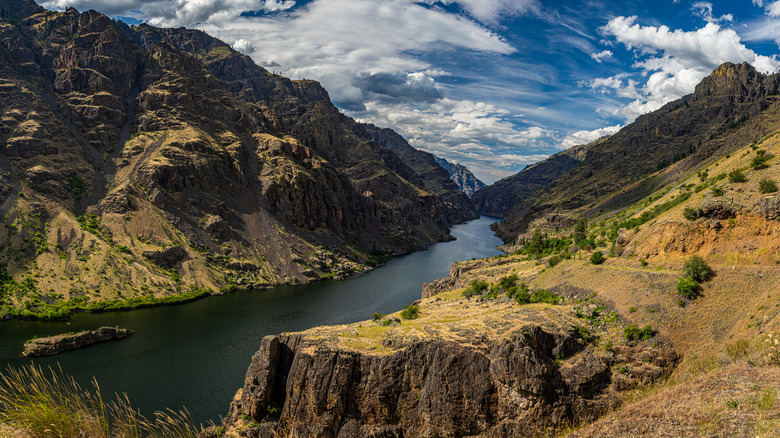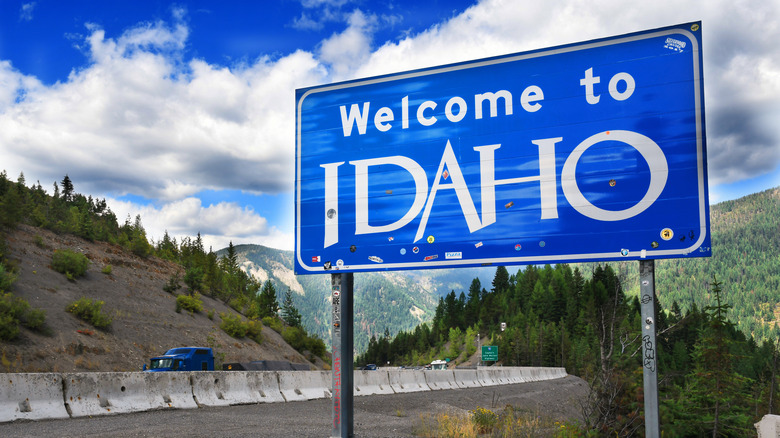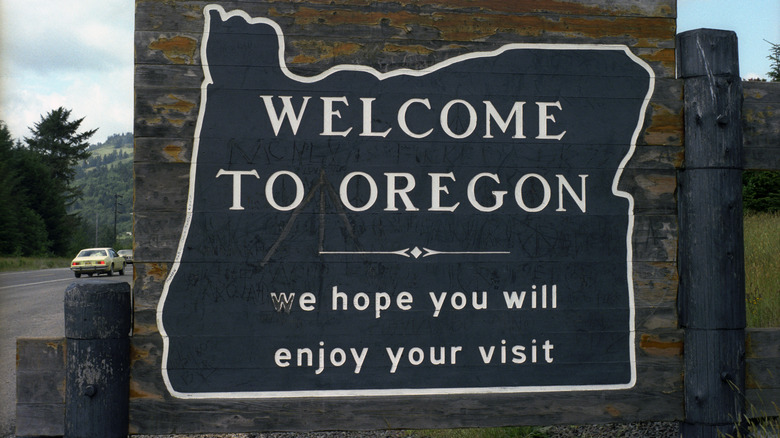Why Do People Want To Change The Idaho-Oregon State Line?
The reasons the state lines of the 50 United States are drawn the way they are are varied, having to do with politics, geography, culture, the needs of the colonial governors of the original colonies that became states, and so on. However, once those lines are drawn, they are effectively etched in stone, and getting them changed is going to require a herculean effort that may not be worth much at the end of the day. Just ask the people of Kaskaskia, Illinois — after the Mississippi River flooded and changed course, the people of Kaskaskia found themselves west of the river's new path, effectively putting them into what is by all rights Missouri. However, that happened in 1881, and the governments of neither Missouri nor Illinois seem remotely interested in redrawing the lines.
The border between Idaho and Oregon was worked out back when the Old West was still a thing, and it has stood for over a century. However, the two states have moved in different political directions since the days of Wyatt Earp, with Oregon leaning consistently to the left and Idaho consistently to the right, according to 270towin. In fact, a few people would like to see a number of Oregon counties be absorbed into Idaho, according to KOIN, and the reason has to do with politics. We'll explain more in the next section, but long story short, the conservative voters of those counties feel like red Idaho is a better fit for them than blue Oregon.
The Greater Idaho Movement
The Greater Idaho Movement, as it notes rather unambiguously on its website, is all about partisan politics. "We promote the idea of creating a greater (bigger & stronger) Idaho so that conservative counties can become a part of a red state," the movement notes. Elsewhere, the website points out that a sort of cultural divide exists between the two states, but the border doesn't reflect that.
So what to do? Have a number of conservative Oregon counties, mostly those on the eastern and southern portions of the state, be absorbed into Idaho where the conservative voters' electoral votes will almost certainly go to the Republican candidate; where the voters will now live in a state governed according to a more conservative state legislature; and so on. The website adds that because this is simply moving counties between two states and not the wholesale creation of a new state, it wouldn't affect the balance of power in the U.S. Senate. It would, however, drastically increase the geographical size of Idaho, more or less doubling it. It would also add a few hundred thousand voters to Idaho's rolls and, of course, remove those votes from Oregon.
The website notes that it's not just conservative Oregonians who are keen to see this change. "Our movement now includes progressives and conservatives of northwestern Oregon who welcome a smaller Oregon, as well as Idahoans, Californians, and Washingtonians," the website notes.
Will It Work?
It is, of course, impossible to look into the future and predict what will happen, particularly when it comes to a thorny political issue involving two state legislatures, the voters in multiple counties, and the federal government. But we can look to history and precedent and try to draw some conclusions.
The Greater Idaho Movement certainly believes that history is on its side, noting that state lines have been redrawn multiple times in this country's two and half centuries. Most recently, the website claims, in 1999, Congress approved a land swap between Missouri and Nebraska. However, the deal involved only a small bit of acreage and not the wholesale movement of roughly half of one state to the other.
Precedent or not, however, there's the matter that the state legislatures of Oregon and Idaho would have to agree to it, as would Congress. That process could take years if not decades, and for now, the only votes about the issue have been non-binding advisory ballots cast by the voters in the involved counties. Idaho House of Representatives voted in February 2023 to open talks with Oregon about the Greater Idaho Bill with 58.57% in favor (per KMTV). However, it remains unclear how constituents feel about this bill (though Oregon Public Broadcasting reported in October 2022 that there was a growing apathy in certain counties that would be impacted by this).


